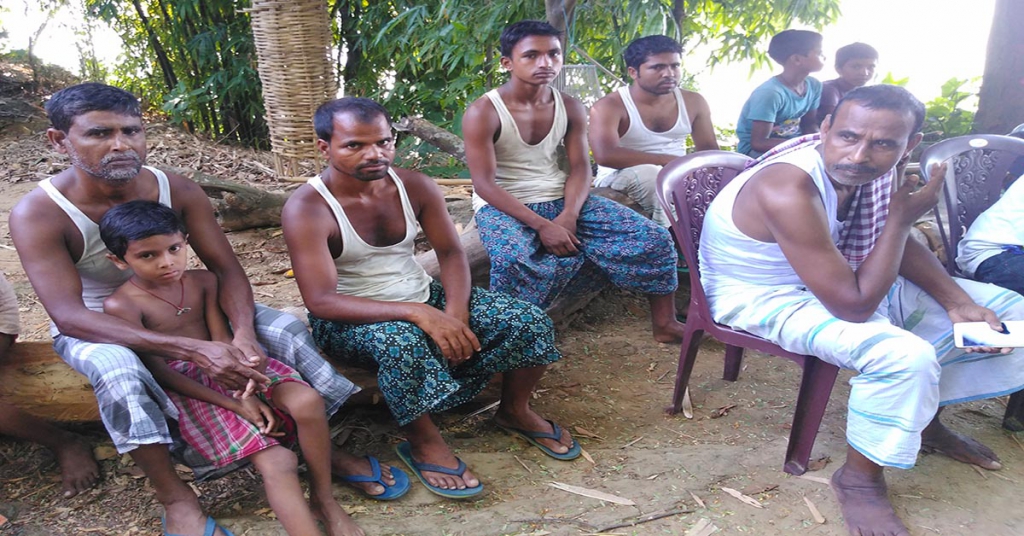Point of Discussion: The petition has been raised by an aggrieved brother of a Declared Foreigner and seeks to establish the unconstitutionality of such a notification in the light of S.2(3) and S.3(2) of the Schedule to the Citizenship (Registration of Citizens and Issue of National Identity Cards) Rules, 2003.
Conclusion: The High Court upheld the constitutionality of the notification dated 2.05.18 and reiterated that any person who was a brother, sister or family relative of a Declared Foreigner shall have to wait for the decision of the Foreigner Tribunal in order to be included in the NRC List.
(A vast percentage of the Orders of the Foreigners Tribunals have been overturned by higher courts)
Summary:
In the case of Azizul Haque v. The Union of India and others, the petitioner approached the Gauhati High Court seeking the quashing of the notification dated 2.05.2018 issued by the Principal Secretary to Government of Assam and NRC. The notification stated that names of brothers, sisters and other family members of the declared-foreigners should not be included in the NRC until finalization of references and also to the Local Registrars of Citizen Registrations(LRCR) to put on hold their decisions regarding inclusion of such persons.The petitioner who had applied for including his name in the NRC as a resident of Sundarpur village in Dhubri District of Assam was not included in the consolidated list of NRC on the ground that his brother, Aynal Hoque, was declared as a foreigner by the Foreigners Tribunal by order dated 30.5.2017. It is the contention of the petitioner that the impugned notification stands in gross violation of the existing statutory provisions and should be set aside. Paragraph 3(2) of the schedule to the Citizenship (Registration of Citizens and Issue of National Identity Cards) Rules, 2003, states that under the said provision only the names of persons who have been declared illegal foreigners by the competent authority shall not be included in the consolidated list and under paragraph 2(3) of the schedule, the NRC should contain the names of persons whose names appear in any of the electoral rolls up-to the mid-night of 24th March 1971 or in the 1951 NRC and their descendants.
The Gauhati High Court has upheld the constitutionality of the said notification and refutes the possibility of any error or infirmity.The Court places reliance on a prior judgment of its Division Bench, decided on 2.5.2017, which held that once a proceedee declared to be a foreigner it would only be a logical corollary to such declaration that his brothers, sisters and other family members would also be foreigners. It was further directed that the State may issue general direction to jurisdictional Superintendent of Police (Border) to cause an inquiry into the brothers, sisters and other family members of the declared foreigners and to make references to the competent Foreigners Tribunal against them.
The Court ruled that the notification is in compliance of the Paragraph 2(3) and Paragraph 3(2) of the Schedule appended to Citizenship (Registration of Citizens and Issue of National Identity Cards) Rules, 2003 and the particular sections are to be read conjointly in a harmonious manner. The Court throws light on S. 3(2) and reinforced earlier decisions that stated thatpersons who are declared illegal migrants, by the IMDT Tribunals or by the Foreigners Tribunals constituted under the Foreigners’ Act, 1946 read with the Foreigners’ (Tribunals) Order, 1964 shall not be included in the NRC. As per the S. 2(3),the Gauhati Court relied on a Supreme Court judgment that clarified that names of D voters are not to be included in the NRC unless they are declared to be Indian citizens by the Foreigners Tribunals. The said judgment also clarified that D voters would include persons whose citizenship are doubted by the electoral authorities and those against whom references are pending before Foreigners Tribunals. The Court further stated that the NRC updation exercise is being carried under the supervision of the Supreme Court and any uncalled interference from the Gauhati High Court would be unjustified.
This ruling of the High Court raises serious issues and concerns as it virtually re-defines the concept and legality of citizenship.
The Gauhati HC order may be read here:
*Kaumudi Srivastava is a legal intern with CJP. She is a fourth year student of Government Law College, Mumbai

